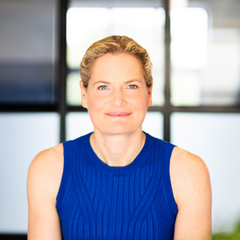Preparing for October Clock Change
.jpg)
The clocks go back on Sunday 27th October 2024, marking the end of British Summer Time (BST). From this point onwards, the days start to become shorter and darker. We catch up with Sleep Expert, Dr Sophie Bostock, who shares top tips for preparing for the clocks going back. Let's hear more from Sophie!
You can set your clocks back by 1 hour at 2am this weekend which many people may view as a positive opportunity to get an extra hour of sleep. Surveys typically find that at least 1 in 3 adults in the UK are getting fewer than the recommended minimum 7 hours of sleep per night, so an extra hour of catch up sleep can help to reduce our sleep debt, and set us up with more energy for the week ahead.
The downside of any shift in clock timing is that it can take a few days for our internal circadian rhythms, or body clocks, to adjust. You might find yourself feeling sleepy earlier, and waking up earlier. Many people find this is a positive, but if you’re a parent of young children, who tend to wake out of bed before 6am, being woken before 5am may be an unwelcome shock to the system...
For a more gradual transition, you can start to make changes this Thursday by following the three-step process below:
1. On Thursday, push naps, meal times and bedtime back by 15 minutes
2. On Friday, delay the above by 30 minutes
3. On Saturday, delay by 45 minutes
Ideally, you would also shift wake up times later by the same amount but not if it makes you too late for school or work! If you're reading this after Thursday, you can still ease into the transition by introducing a 20 minute delay on Friday and/or Saturday... every little helps!
Hear more in Sophie's latest reel!
For many, the end of British Summer Time, and especially the darker evenings, can signal a seasonal shift in mood and energy levels. The good news is that Lumie lights have got you covered! Check out our range of bright light therapy lamps and wake-up lights to bring brightness to the autumn and winter days.
For further top tips on beating the winter blues, why not attend Dr Sophie Bostock's free 40-minute webinar at 7pm on 13th November? You can find a link to register here.





